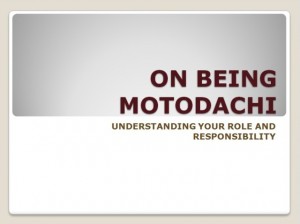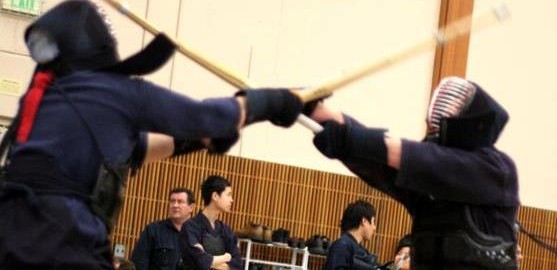Original presentation given January 7, 2015
Bellevue, WA
All posts by Jeff Marsten
Being Motodachi
Presentation for those that serve as motodachi at their club and some tips on what and how to improve.

View on Slideshare or download here.
The Path to Excellence
In kendo there is an old maxim that states 1,000 practices to temper and 10,000 practices to polish. Research has shown that to become an expert requires 10,000 hours of practice. So let’s look at the numbers to get there. In general we have about 45 practices per year. So if by some miracle you attend all these practices we have a baseline to go by.
First by number of practices: Continue reading The Path to Excellence
Some Observations on the AUSKF Kodansha Examination
I have been concerned for sometime regarding the AUSKF Kodansha examination pass rate and in particular the people trying for godan. As an examiner I would like to share some observations and hopefully some feedback to those testing.
Some Statistics
The pass rate for April 2012 through April 2013 is 15% success which is low compared to Japan where the rate averages about 20%. I think one reason is there are seminars provided in Japan before the test to help the candidates have a better chance of success. I hope AUSKF can develop such a program in the future to better serve the membership. Continue reading Some Observations on the AUSKF Kodansha Examination

On Being a Good Aite (Partner)
Being a good partner or aite is another critical aspect to the overall development of the club membership as is the sharing of waza practice. Each person need and must be a good practice partner. The practice of any waza requires that both sides of the drill be done as if it were in keiko. Unless otherwise instructed because it is a brand new skill and everyone is working through it in slow motion, it should be done with full speed and intent. If your job is to attack the kote as part of an oji waza then you should be practicing your kote attack as if trying to score. This allows the partner if their job is to work on a counter to the kote attack to learn if what they are doing really works. This benefits both sides with learning and skill development as your partner gets the correct input so they can understand if their counter is working or not and you refine your kote strike. Continue reading On Being a Good Aite (Partner)